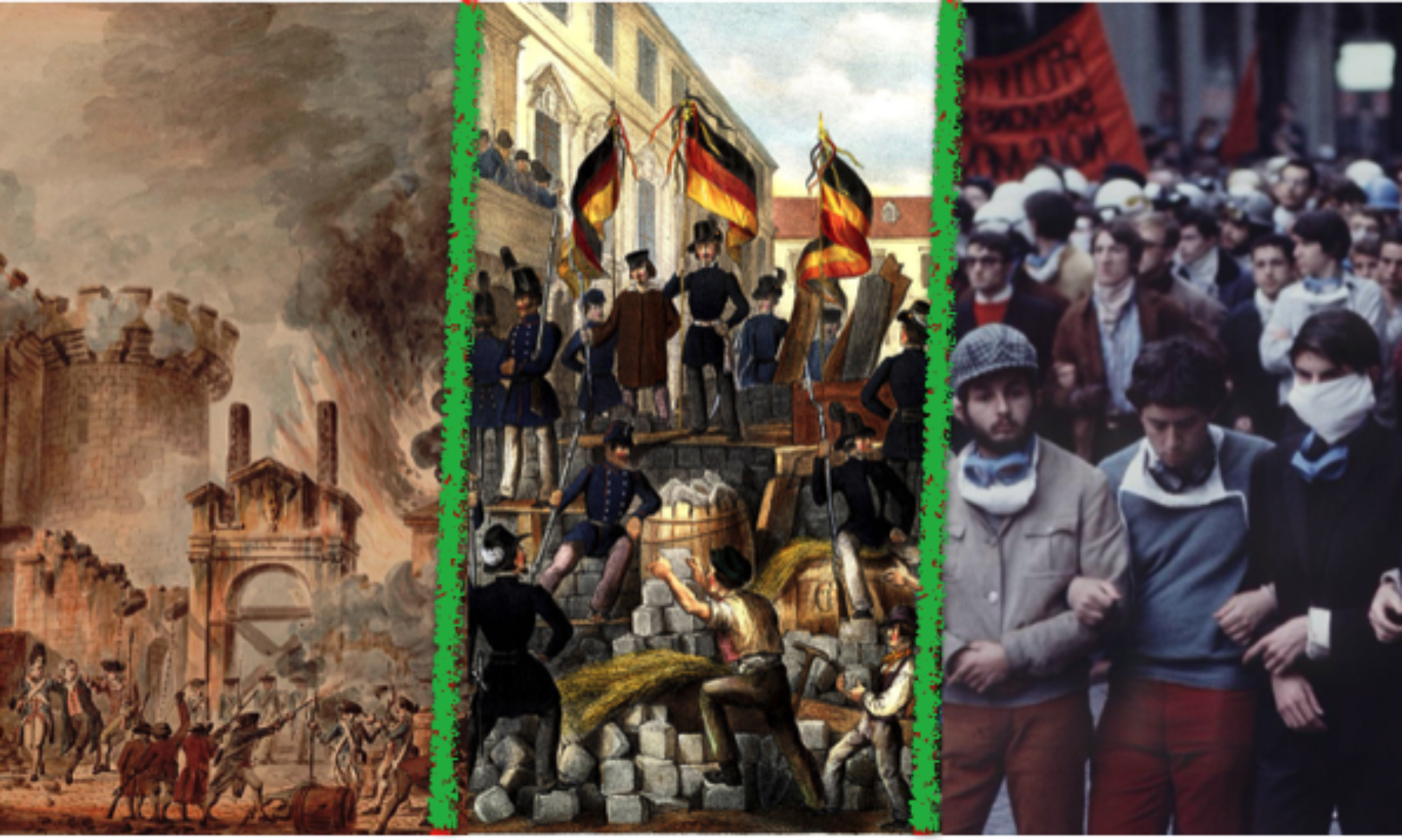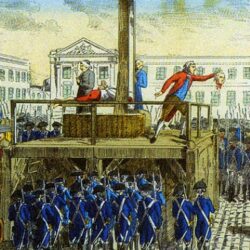The language of this decree is amusing to me. It seems that they were suggesting that a revolt over slavery a “minor disagreement,” and that they were taking the situation out of proportion. Evidently I disagree, I think it is exactly the actions of the rebels that got this decree made. What do you guys think? Or furthermore, is this an attempt to maintain a sense of legitimacy (as in the revolt had already decided that slaves were free, but France wanted to say it so they could act like it was the decision of the nation)
The Many, Many Ways of Not Giving People Freedom
Throughout the Dubois article, there is a lengthy discussion on the various ways the ruling elite thought about emancipating the slaves in the colonies. Some of these ideas included gradual emancipation based on age and “freeing” oneself by working for payment on their own time: “a process of gradual self-purchase, where the slaves, using money they made during their one [emphasis added by me] free day of the week, could buy additional days of freedom from their masters until they were entirely free (270). All of these discussions are predicated on the idea that a formerly enslaved human could not understand the significance of being an active member of society. To me, this arguments seem to be focused on maintaining white economic superiority within the French Empire and not at all to do with actual human right issues the revolution is attempting to address. In fact, I think Dubois feels this way with the incorporation of the Sieyes paragraph on page 259. What are your thoughts on the many painfully arrogant ways these French men though about emancipation within an empire?
Did it have to happen like this?
In the various readings, we see discontent for France on a continuous rise in the colonies. Like so many other positive changes that came from the revolution, the Directory began clawing back the liberal reforms of the National Assembly. By the time Napoleon came to power, the France was trying to reimpose slavery in the colonies. It is really strange to me that Napoleon worked to bring slavery back to the colonies. We know from the readings that the colonies were an integral part of the French economy, but that success relied on slavery for centuries. Reforming the system would have been a long and difficult process, but definitely worth it to end slavery. Even if Napoleon did not understand how terrible slavery is, he certainly would have known about the unstable nature of the colonies. Reading the Haitian Declaration of Independence, it is easy to see the damage of the decision to reintroduce slavery. We see phrases like “Independence or death” or “Eternal hatred of France” throughout the declaration. Overall, it is a really hostile document. Why would Napoleon think it is a good idea to reimpose slavery after it had been abolished? If the colonies were so important to France, I would think Napoleon would have worked harder to find a better solution than reimposing slavery.
“War Between Brothers and Sisters”
For class we had to read the document titled “War Between Brothers and Sisters: Inheritance law and gender politics in revolutionary France” and the topic of inheritance law was an issue that I was never truly aware how big of an issue it was in the French Revolution. in 1793-1794, it was established that all property would be divided equally among offspring regardless of being illegitimate or not. It was no surprise however that even though this inheritance law was put into place there was still a divide on gender relations between families (as a result of sons being favored over daughters and marriage arrangements). One of the issues that was touched upon on page 220 and page 221 was the issue of tradition. Dezan stated that “Moreover, by offering equal inheritance rights to women as rights-bearing individuals, the reforms undermined family strategies and called into question traditional assumptions about the status and position of women (221).” With Dezan describing the issue that comes with offering equal inheritance rights, is there a point in time where one can truly abandon tradition for the sake of growing as a society? and in the case of this document, why describe such a difference between women and “rights-bearing” individuals?
1790s Pornography: Intense and Pervasive Misogyny
Sydney Kightlinger
When I glanced at Hunt’s title “The Many Bodies of Marie Antoinette: Political Pornography and the Problem of the Feminine in the French Revolution,” I thought this article would focus on the Madonna/Whore complex. This is a very tired, but reoccurring theme in Women’s Studies; however, I feel like Hunt’s conversation pushes past this to critic French Society. Obviously, the maker of the pornographic literature is using Madonna/Whore imagery/troops, but Hunt’s analysis focuses on the fear of the revolting society. I found her incorporation of Girard’s thought on “a crisis in a community that leads to a search for scapegoat” to be interesting when she pairs it with the need to “re-establish the ‘natural order'”(212-213).
In short: French society operates with intense and pervasive misogynistic, but how do you think the role of a “community in crisis” further forces the conversation of equality to be hush?
Massimino Blog Post 9/10/20
“The Many Bodies of Marie Antoinette” proved to be a very interesting piece. I think it ties in very well with discussions we have already been having in class. For most of history, women remain a concept, never appreciated in reality, and yet are always placed in higher blame even when powerless in their situations. One can never talk misogyny without mentioning Rousseau, who blamed the downfall of men to always be at the hands of a woman’s “seducing and betraying” (211). Rousseau always manages to remain a perfect contradiction in describing the intrinsic evil that is woman all while insisting that the “natural order” of them is being in the private sphere as dainty and subservient creatures. In reality, Marie Antoinette had been moved to France as a young girl and arranged to marry Louis. Her “job” as Queen included nothing political. In fact, it was to represent the height of French society, which she did. For those familiar with the Madonna/Whore complex, it is very interesting to see her public image be shifted from one to the other. She doesn’t necessarily change, but the way in which she is perceived does. Personally, I think her legacy as the face of opulence and corruption in the monarchy is unfair and reflective of an inherently misogynistic society.
War Between Brothers and Sisters
Desan’s piece on inheritance law and gender politics during the revolutionary period presents an interesting argument that the liberal actions of the National Assembly did include some rights for women, even if voting and political participation was still excluded. While I definitely understand the points Desan is communicating about these great new reforms that help women, one question still remains for me. If the reforms were so great, why were they largely reversed by the Directory? Desan mentions that “the Directory revised only the most extreme features of revolutionary civil law” (p 242). Is the issue of inheritance really so radical that the Directory had to reverse other similar reforms? I’m personally not sure I even buy this argument that revolutionary France was actually not that bad for women. What does everyone else think about all of this?
Sam Stewart Discussion Post and Question
When looking a chapter 8 I found myself very interested in document M. In this document Napoleon says that he would “have willingly become a Washington” . He admired George Washington’s ideals of “modestly,disinterestedness, and wisdom.” Napoleon argues the only way to bring peace during his reign was to subdue other nations and run a totalitarian style empire. I wanted to pose this question to others in the class: Did Napoleon really desire Peace and neutrality like Washington or are his words in this document untrue? In my opinion, Napoleon is flat out lying and was just trying to improve his legacy through writing. He knew he would be in exiled for the rest of life so he figured he should make himself appear better to future generations. However if we look at his reign more closely we find that he had many opportunities to chose peace but yet kept pushing for war at every turn . Take the invasion of Russia of 1812, Napoleon figured that this invasion could distract people from his failures on other fronts. I don’t believe this is a strategy Washington would ever take, but what do you guys think?
Alex Garvey
I agree with Sam that Napoleon is lying in his writing and only trying to improve his legacy. His tactics to acquire a totalitarian empire oppose what Washington would do directly. It is evident he didnt really want peace and just wanted to become well liked because of his failures on the battlefield.
Jonathan Haines
I believe Napoleon was a great opportunist and was able to meticulously gain power with charisma and a form of manipulation towards the supporters of the revolution. Napoleon said he was Washington like but he truly stood for complete power and in the end he betrayed the revolution. Napoleon is very similar to other polarizing political leaders who talk big and rally people to follow him.
The Terror
For our last class, we read about a new age of freedom in France, free of the absolute monarchy of centuries past. While we all seemed to agree that the changes proposed may not have been as liberal or democratic as they were viewed by the National Assembly, it was still movement in the right direction. In today’s reading, we see France fall into the Reign of Terror, a departure from the “amazing” society that the revolution was supposed to create. Here’s my question: What went wrong? Although it may seem simple, I think this is something we need to talk about. Popkin mentions a few theories from historians at the end of Chapter 5. The one that mentions the “outgrowth of the movement’s utopian and unrealistic aspirations.” Was the government being unrealistic? Another interesting position Popkin mentions is that the Terror was a method to actually reduce the likelihood of even more violence. What does everyone think about that?
Women stay put! We are reinventing society (?)
Sydney Kightlinger
Today’s reading is centered around how the men of the Radical Revolution set out to complete reformat everyday society. While they were fine with holding up the status quo for women’s place in society, they felt it was of the utmost importance to change the concept of time?
I found the events detailed in today’s reading to be particularly infuriating because of the obtuse thought of Robespierre and his crew. On page 145, Popkin talks about how language reforms to reaffirm equality and continuity of the nation. I think there is great power in language and think that reevaluating how you address others does promote social change, but in this case it seems like too little when they are beheading anyone who disagrees with them, including Olympe de Gouges and other women activists. I was further aggravated by the time spent separating society from religion just for them to make a different cult.
Did anyone else have a reading like this? Do you think I am being unjust in characterizing Robespierre and his friends has misogynists?
Also, here is a meme:


